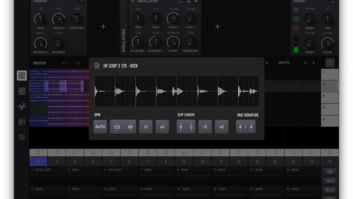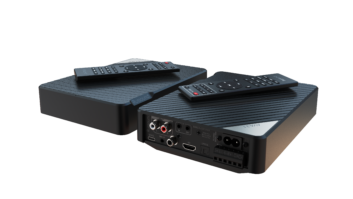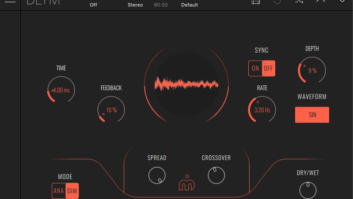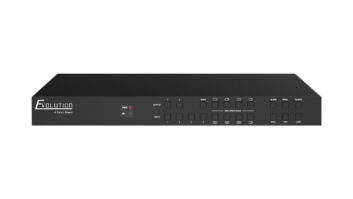Sunnyvale, Calif. — The licensing agency for the HDMI digital connection standard formally unveiled Thursday the HDMI version 1.4 specifications, which among other things will enable bi-directional communication allowing networking capabilities with Ethernet devices, and upstream audio transmissions.
HDMI 1.4 includes an HDMI Ethernet Channel (HEC) enabling data transfers of up to 100Mbps between supported connected devices, said the HDMI LLC, the agent responsible for licensing HDMI specifications.
The bi-directional connection allows a broadband-connected television using its HEC-enabled HDMI port to provide Internet connection sharing with another HEC-enabled device, such as a game console or DVR.
The HEC will require new HDMI 1.4 cables, which will be offered in two performance levels of low- and high-data rates.
Other key new features include an Audio Return Channel (ARC) that allows broadcast audio to be easily streamed back to an external amplifier for processing, eliminating the need for an extra cable in cases where HDTVs are directly receiving audio and video content.
It also adds Automatic Content Enhancement (ACE) with support for future 3-D video standards, up to dual-stream 1080p resolution, increased resolution support up to 4,096 by 2,160 pixels at up to 30Hz, and content recognition that can automatically optimize a TV’s picture settings based on content type.
The connection will permit for the first time “Internet connection sharing, and device-to-device content distribution — so a user can, for example, get content from a video camera, through the TV and up to a DVR to store it there,” Steve Venuti, HDMI LLC president, told TWICE, “or you can get Internet content streaming into the TV and send it up to a storage device and copy it there.”
The format will also enable recording and copying non-content protected signals over HDMI, he added.
“It provides a ready-to-go pipeline for other applications in development that require a backbone to run on like, DLNA, UPnP, LiquidHD and others,” Venuti said. “We want to be the single connection that everyone can rely upon to deliver all your, audio, video and, in this case, data needs.”
The HDMI specification 1.4 will be available for download on the HDMI LLC Web site by June 30, the HDMI LLC said. The first products based on the specification are expected to be announced after that date.
Other enhanced functionalities in the spec include the following:
* multi-video resolution support, including 3,840 by 2,160 24Hz/25Hz/30Hz, 4,096 by 2,160 24Hz;
* expanded support for color spaces designed specifically for digital still cameras, including YCC601, Adobe RGB and AdobeYCC601;
* a Micro HDMI 19-pin connector supporting up to 1080p resolutions for portable devices. The mini connector is approximately 50 percent smaller than the size of the existing HDMI Micro Connector; and
* an Automotive Connection System cabling specification designed for in-vehicle HD content distribution, including specified resistance levels to heat, vibration and noise.
Venuti said consumers can expect to see new HDMI 1.4 cables introduced to the market when new HDMI 1.4 devices are available, including the standard HDMI cable, supporting data rates up to 1080i/60; and the high-speed HDMI cable, supporting data rates beyond 1080p, including Deep Color and all 3-D formats.
Venuti cited In-Stat market research showing more than 394 million HDMI-enabled devices are expected to ship in 2009, with an installed base of 1 billion devices. By the end of 2009, 100 percent of new digital televisions are expected to have at least one HDMI input.













